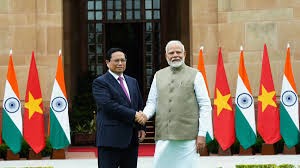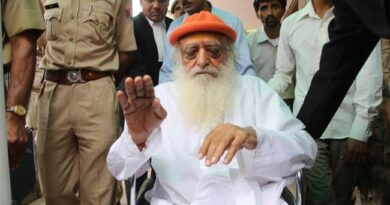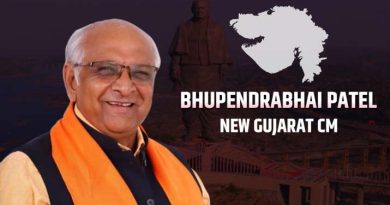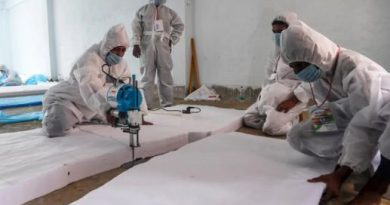As India and Vietnam Strengthen Ties, PM Modi Speaks Out Against ‘Expansionism’
Prime Minister Narendra Modi emphasized the significance of Vietnam in India’s “Act East” policy and the broader Indo-Pacific vision. In his statement to the media, PM Modi highlighted India’s commitment to development and cooperation rather than expansionism, articulating this stance in Hindi: “हम विस्तारवाद नहीं, विकासवाद का समर्थन करते हैं” (“We support development, not expansionism”). This statement underscores India’s intent to foster collaborative growth and stability in the region, aligning with India’s broader strategic and diplomatic objectives.
India and Vietnam have reinforced their strategic partnership by adopting an action plan aimed at broadening their collaboration across various sectors. During the bilateral talks between Indian Prime Minister Narendra Modi and Vietnamese Prime Minister Pham Minh Chinh, PM Modi reiterated India’s commitment to a rules-based Indo-Pacific region, emphasizing India’s focus on development rather than expansionism. This stance is particularly relevant given the regional concerns over China’s assertive military activities.
The two nations formalized their cooperation by signing six memorandums of understanding (MoUs) and finalizing three additional agreements, encompassing a wide range of areas including defense, economic ties, and cultural exchanges. A significant aspect of this expanded cooperation is India’s commitment to providing a USD 300 million line of credit to Vietnam. This financial support is primarily intended to bolster Vietnam’s maritime security capabilities, underscoring the strategic importance of maritime security in the Indo-Pacific region for both countries. This partnership reflects a mutual interest in ensuring regional stability and security, particularly in the context of maritime challenges.
India and Vietnam have taken a significant step forward in enhancing their strategic partnership by sealing an agreement between their central banks for digital payment connectivity. This move is expected to streamline financial transactions and promote economic ties between the two nations, reflecting their commitment to modernizing and expanding their economic relations.
Vietnamese Prime Minister Pham Minh Chinh’s three-day visit to India, which began on Tuesday night, underscores the deepening of comprehensive strategic ties between the two countries. In a media statement, Indian Prime Minister Narendra Modi emphasized Vietnam’s importance in India’s “Act East” policy and Indo-Pacific vision, highlighting that India prioritizes development over expansionism. He stressed the commitment to a free, open, rules-based, and prosperous Indo-Pacific, a region where both countries share strategic interests.
During the talks, the leaders agreed to enhance cooperation in several areas, including defense, security, counter-terrorism, and cyber security. PM Modi highlighted the alignment of India’s “Developed India 2047” vision with Vietnam’s “Vision 2045,” noting that these goals are driving accelerated development and opening up new avenues for mutual cooperation. The adoption of a new action plan reflects a shared resolve to strengthen the Comprehensive Strategic Partnership, particularly in defense and security, to address common challenges and ensure regional stability.
India and Vietnam have taken significant steps to deepen their bilateral relationship, as highlighted by several key initiatives and agreements. Prime Ministers Narendra Modi and Pham Minh Chinh remotely inaugurated an Army Software Park at Telecommunications University Nha Trang, a project supported by Indian development assistance, underscoring the growing technological and defense collaboration between the two nations.
A major financial commitment was also made, with India extending a USD 300 million credit line to Vietnam aimed at enhancing its maritime security. This investment reflects India’s strategic interest in strengthening regional stability and security, particularly in the Indo-Pacific region.
The leaders emphasized the importance of swiftly concluding the review of the ASEAN-India Trade in Goods Agreement (AITIGA) to unlock the full trade potential between the countries. Vietnam, as an influential member of ASEAN, plays a crucial role in India’s “Act East” policy and broader regional engagement.
Both nations agreed to prioritize cooperation in green economy initiatives and emerging technologies. This includes leveraging each other’s strengths in energy and port development, highlighting a commitment to sustainable growth and innovation.
Prime Minister Modi also extended an invitation to the people of Vietnam to visit India’s Buddhist circuit and encouraged Vietnamese youth to explore educational opportunities at Nalanda University, fostering cultural and educational exchanges.
Modi noted the transformation of India-Vietnam relations into a Comprehensive Strategic Partnership over the last decade, with bilateral trade growing by more than 85%. This partnership has seen expanded cooperation in energy, technology, and defense sectors, marking a significant momentum in their strategic alliance.
Prime Minister Narendra Modi highlighted the increasing connectivity and growing ties between India and Vietnam over the past decade. He noted that there are now more than 50 direct flights connecting the two countries, which has significantly boosted tourism and people-to-people exchanges. Additionally, the introduction of e-visa facilities has further facilitated travel, making it easier for citizens of both nations to visit each other.
These developments reflect a broader effort to strengthen bilateral relations, enhance mutual understanding, and promote cultural and economic exchange between India and Vietnam. The emphasis on connectivity and travel highlights the importance both countries place on fostering closer ties and collaboration across various sectors.




